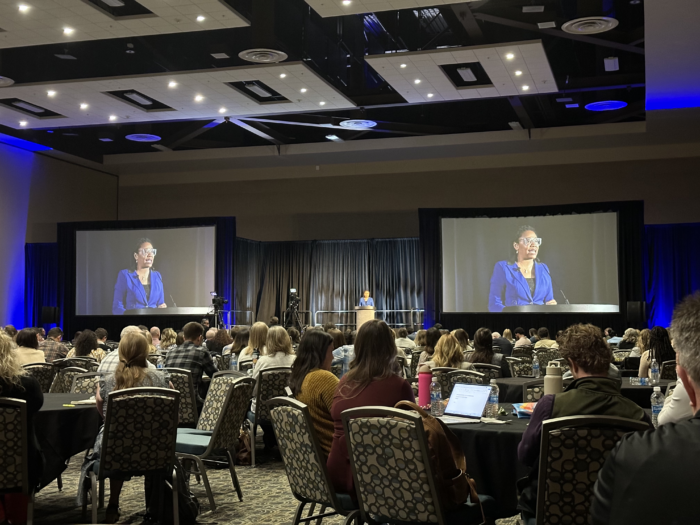The Final Day of the 2024 National Symposium for Classical Education
Great Hearts Institute March 22, 2024 -
Throughout this week, the 2024 National Symposium for Classical Education not only enriched attendees with knowledge and intellect, but has also provided classical educators with a window into their broader community. Discovering that you’re not alone in the educational challenges you face is heartening. Connecting with like-minded peers offers a source of strength and support, as together, you navigate common hurdles. This sense of community stands out as one of the symposium’s most invaluable benefits.
During the keynote addresses, Symposiasts have discovered the patterns of attention found in fairy tales and the meaning those bring with Jonathan Pageau. They learned how a liberal education transformed Roosevelt Montas’ life. They were inspired to be great leaders in classical education from the Honorable Tony Abbott, former Prime Minister of Australia. They saw the potential of connecting virtue pedagogy into secondary education with Jennifer Frey. And they were reminded to let mercy lead with Toyin Atolagbe. All of hat plus the many workshops, scholarly talks, breakout discussions, and special presentations that were attended.
Attending any three-day conference can be an uplifting experience, packed with valuable insights, networking opportunities, and knowledge sharing. However, the challenge lies in retaining the vast amount of information absorbed during these intense days. As attendees leave the ballrooms and workshops for the last session and make the journey home, whether it be near or far, the last thing they want to do is forget any of the information they gained or lose any of the inspiration.
Here’s how to make the valuable insights stick with you long after the event:
- Organize Your Notes: Take some time to review and organize your symposium notes. Group related topics together, highlight important information, and create summaries to visualize connections between different concepts. Organizing your notes helps reinforce learning and makes it easier to revisit specific topics later.
- Reflect on What You’ve Learned: Reflection is essential for solidifying new information in your memory. Set aside some time to reflect on the key takeaways from the sessions you attended. Do this while the information is still fresh in your mind. Consider how the information relates to your work as an educator, administrator, or parent, and think about how you can apply it in your daily life.
- Engage in Post-Symposium Discussions: Reach out to colleagues who attended with you or those you networked with during the Symposium to discuss the topics covered. Engaging in discussions not only reinforces your understanding of the material but also provides different perspectives and insights that you may not have considered. Share your own experiences and listen actively to others’ viewpoints.
By implementing these strategies, you can maximize your retention of information after the packed three-day Symposium and ensure that the knowledge gained continues to benefit you long into the future. As life-long learners, we know that effective learning is an ongoing process, and investing time and effort in consolidating your understanding will build your personal and professional growth.
If you missed out on this year’s symposium, make plans now to attend the National Symposium for Classical Education in February 2025. Keep an eye onhttps://classicaleducationsymposium.org for more information and registration details.
Do you have a story or know of a story that you would like to see featured at Great Hearts? Please contact jmoore@greatheartsamerica.org.
